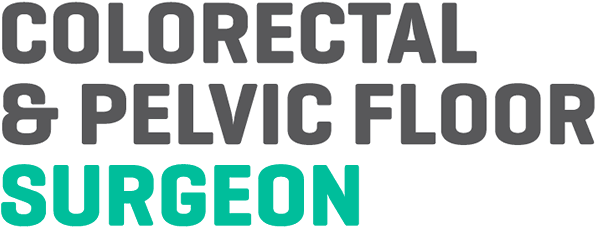- Abscess Incision and Drainage
- Advancement Flap Repair
- Anal Bulking
- Anal Tattooing
- Botulinum Toxin Injection
- Colectomy
- Delorme’s Procedure
- ELAPE Procedure
- Femoral Hernia Repair
- Fistulotomy
- Haemorrhoidectomy
- HALO-RAR Procedure
- Inguinal Hernia Repair
- Intersphincteric APR
- Lateral Internal Sphincterotomy
- Low Anterior Resection
- Pelvic Organ Prolapse
- Perineal Rectosigmoidectomy
- Rectoanal Repair
- Rubber Band Ligation
- Stapled Haemorrhoidopexy
- Stoma Creation
- Stoma Reversal
- Transanal Rectocoele Repair
- Umbilical Hernia Repair
Transanal Rectocoele Repair
A transanal rectocoele repair can be performed in women to stop the rectum from bulging into the vagina, particularly when symptoms include constipation. The repair is done through the anus, so there are no incisions on the outside skin. It is often used in frailer older women who are not fit enough for an operation through the abdomen, and it can be performed if it is the patient’s preference. You will have the opportunity to discuss fully all the risks and benefits of this operation with me before signing your consent form.
This procedure involves lifting up the anterior mucosa of the rectum (the inner lining of the back passage on the side facing the front), trimming the mucosal lining, and stitching the rectal wall muscle together with sutures (plication) to close the rectocoele. The mucosal lining is then closed over the repair. The whole procedure takes about 60 minutes and is relatively simple to perform.
A transanal rectocoele repair is performed under general anaesthesia. You will need to fast from midnight on the night before if your surgery is scheduled for the morning, or from 7 am if it scheduled for the afternoon. You will receive an enema an hour or so before your surgery. A long-acting antibiotic will be given in the anaesthetic room along with an injection of local anaesthetic before you leave the operating theatre to help keep you pain-free in the 6 hours after your procedure.
After the operation you will be transferred to the recovery area and then to the ward.You are likely to feel some discomfort after your local anaesthetic wears off, but in most cases this can be managed with simple oral painkillers. You will be able to eat and drink as soon as you feel able (most people can do so within hours of their surgery). You are most likely to require an overnight stay in hospital, but some people may need to stay in hospital longer. You should not drive after your surgery, so a friend or relative will need to take you home.
It is important to keep your bowel movements soft and regular and avoid straining while you are recovering from your procedure. To prevent constipation, eat foods high in fibre, and drink plenty of water (6–8 glasses a day). It is also a good idea to take laxatives for 4–6 weeks after your procedure. Analgesia and laxatives will be given to you to take home.
You can expect minor bleeding after your surgery, and a sanitary towel changed twice daily will help to prevent staining of underwear. It is normal to notice bleeding after you have opened your bowels, but if the amount of blood is more than a couple of teaspoons a day, please let my office know.
Normal activities can be resumed when you get home, but some people do take longer to recover. Full recovery may take up to 3–4 weeks.
Exactly when patients can resume driving after this type of surgery is determined on a case-by-case basis and this will be discussed with you after your surgery, but is generally 2 weeks after your operation. Please let your insurance company know when you have been given the all-clear to resume driving.
A follow-up appointment in the clinic will be arranged for 1–2 weeks after your surgery to check your wound and discuss any further management if required.

